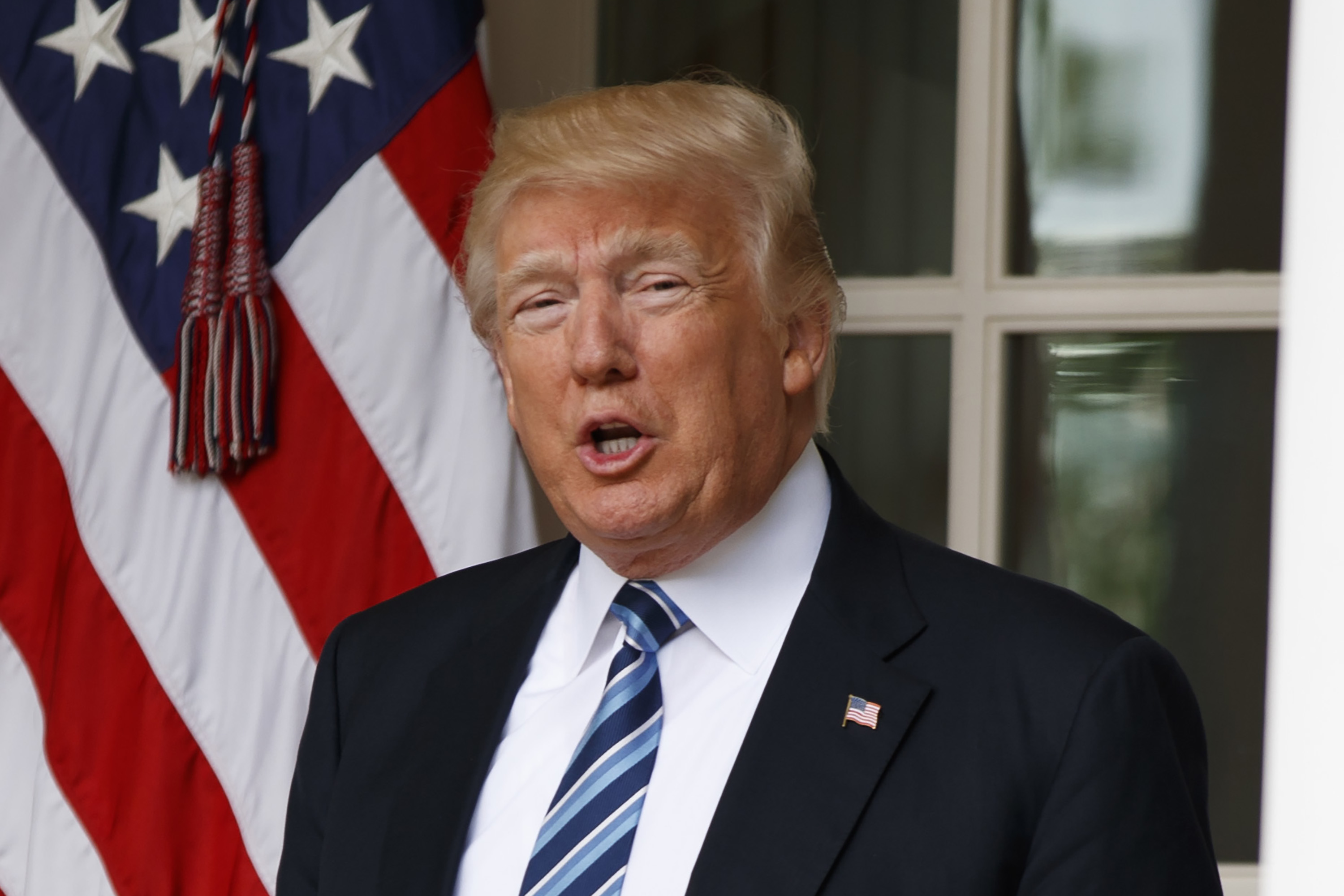
Paul Sperry
Paul Sperry is the author of “Infiltration: How Muslim Spies and Subversives Have Penetrated Washington.”
During a Capitol Hill hearing this week over his investigation into allegations President Trump worked with the Kremlin to steal the election, FBI Director James Comey showed his hand, and he’s not holding any aces. In fact, he’s got a whole lot of nothing.
In an exchange with Democratic Sen. Al Franken, Comey revealed the assumptions undergirding his investigation, which started in the heat of the 2016 presidential campaign, despite any specific evidence of a crime.
"What is your assessment of why the Russian government had a clear preference for President Trump?” Franken asked.
"One is he wasn’t Hillary Clinton,” Comey replied, "who [Russian President Vladimir] Putin hated and wanted to harm in any possible way; and so he was her opponent, so necessarily they supported him.”
Also, "Putin believed he would be more able to make deals . . . with someone with a business background,” the FBI chief added. But, a disappointed Franken pressed, wasn’t it also because Trump was "ensnared in their web of patronage?” No, said Comey.
So there you have it. The conclusion that Russia tried to steal the election for Trump is based on pure speculation about how Putin thinks. The notion Trump was in Putin’s back pocket doesn’t even factor into it.
There’s more bad news for Franken and other tin-foil-hat-wearing Democrats peddling the theory Trump is Putin’s Manchurian candidate. It turns out the FBI probe doesn’t even focus on Trump or his key campaign aides. It centers almost exclusively on a former Merrill Lynch executive who was based in Moscow a decade ago.
His name is Carter Page, and he never formally worked for the Trump campaign. In fact, he first showed up on the FBI’s radar three years before Trump announced his candidacy.
Page is the main investigative target and apparently the only one remotely tied to the Trump campaign to have his communications targeted with a FISA warrant. To obtain that surveillance warrant, the FBI relied on a discredited dossier, which will make it hard to prosecute Page.
The opposition research firm behind the dossier, which alleges nefarious collusion between Trump and Putin, is Fusion GPS, which conducts "political disinformation campaigns” — sometimes for Moscow. "The relationship casts further doubt on an already highly dubious dossier,” Senate Judiciary Chairman Chuck Grassley wrote the Justice Department in a recent letter.
Adding to suspicions, the author of the dodgy dossier may have been on the FBI’s payroll, according to Grassley. The GOP senator asked Comey about "payments” the bureau made to researcher Christopher Steele, and Comey dodged the question without denying payments.
So nine months in, this is where the FBI’s investigation stands: No evidence of collaboration between the Trump campaign and Moscow, something even Obama’s intelligence czar verified. No charges against any Trump aides for espionage. And one case against a single, tangentially connected suspect built on tenuous evidence at best.
Even Comey’s theory about Putin favoring Trump lacks direct evidence. In fact, there is just as much evidence Russia hackers were trying to hurt Trump.
Yes, Russian hackers may have publicized batches of emails from the DNC and the Clinton campaign chairman. But the RNC was also a Russian hacking target. The only reason hackers got deeper into the DNC is because the DNC and John Podesta bit on phishing scams.
In September, moreover, Russian hackers also leaked embarrassing emails about Trump from ex-Republican Secretary of State Colin Powell, who called the GOP nominee a "national disgrace” and an "idiot.”
And if Russia really wanted to hurt Clinton and the Democrats, why did it withhold the coup de grace: a potentially devastating memo written by a Democratic operative who expressed confidence that Obama’s attorney general would keep the Clinton email investigation "from going too far” and ensure her victory?
A copy of the document, which might have convinced already distrustful voters of her guilt, was intercepted by the FBI.
After Wednesday’s Senate Judiciary Committee hearing, CNN asked the ranking Democrat, Sen. Dianne Feinstein, if she had evidence of collusion between the Trump campaign and the Russian government during the election. "Not at this time,” Feinstein sheepishly replied.
The case against Trump is paper-thin. What started as a political fishing expedition has nonetheless turned into a full-fledged witch hunt, fanned by a Democrat-dominated media hellbent on demonizing and destroying Trump and his policies.



_jpg/250px-ElbeDay1945_(NARA_ww2-121).jpg)





